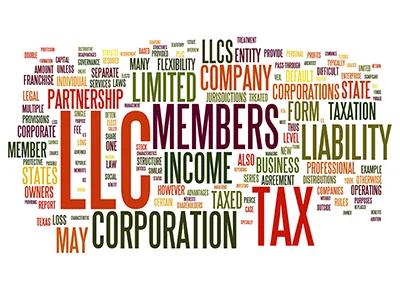
Asset protection planning denotes the process of shielding your valuables from lawsuits and creditor collection attempts during your lifetime and following your death. You’ve worked your whole life accumulating assets. Luckily for you, very good asset protection planning doesn’t need to be costly.

Most individuals with a long-term vision, know about the need to invest. So they begin learning about investments and start accumulating assets to add to their portfolios. Then comes a realization about the parallel need to play defense. Why? Mostly, to protect assets from lawsuits. If you discover a pending lawsuit against you, the majority of your assets could be in danger of being taken away from you. If a lawsuit is filed against an individual or his or her company and the plaintiffs prevail, these unfortunate souls often wind up losing most, if not all, of their assets when unprepared.
Assets Support You – Protect Them
Assets are something very precious for any individual who has them. They can be a simple as a checking account used for putting food on the table; creature comforts such as TVs, cars and jewelry; the homes in which one lives, or real estate or stock market investments that are used provide income in one’s latter years. Their presence represents security and thoughts of their absence evoke fear and dread. Therefore, both finding financial security and protecting it becomes an important part of the wealth accumulation process.

Protecting Assets and Risk Management
What about the idea of risk management for the protection of assets? Risk management doesn’t work in all situations. You still need to pick your asset protection plan or plans with foresight and knowledge. Many wealthy individuals advise putting your assets into a couple of aggressive investments that you can watch closely rather than spreading them out. That may be good idea from an investment growth perspective. But it also puts them in one nice little tidy bundle for opposing counsel to wrap up and take home.
As an investor doing research on how to protect your assets, you must take responsibility. Do your research, find the best help available, formulate a strategy, and establish the proper legal tools that comprise your financial fortress. In the end, investors must still take the reins. Securing your wealth is too critical leave it to amateurs. You may get along well with your broker, CPA or attorney, but do they specialize in asset protection? Probably not. So, before acting, expert help should be sought and money has to be expended in your quest to erect the best plan you can.
Safeguarding Your Assets: Picking a Plan
There are a few things you can do to safeguard your assets successfully. To start with, if you are worried about finding a broker on your own and eager to protect the security of your assets, one of the best first steps in establishing your asset protection plan to pick a highly regarded expert or organization that specializes asset protection.
When approaching the situation of hiring an expert for your assets, search around, check out their websites and social media, and call them and ask questions. Now, the organization writing this page that you are reading right now also provides this service. But the purpose of this article is to support you, not to solicit you. Though, naturally, it would be an honor to be that organization for you. This article, however, is meant to provide an unbiased framework from an experienced, research based perspective so you can make up your own mind.
The key is to do your own investigation and make sure you find a place you feel will give you the service and protection you need if a lawsuit rears its ugly head. Once you find an organization that you not only feel has the knowledge necessary to assist you, but with which you feel comfortable and confident, then you can make your choice. While this step may take some time, it is crucial to the overall success of your asset management protection plan.
What Can You Protect?
Fixed Assets
So, exactly what types of assets can a specialist protect with an asset protection plan? The first type of assets to protect are fixed assets. Fixed assets are the long-term items that you or your business have acquired and are not likely to be quickly converted into cash, such as real estate and equipment.
If you have real estate, you can record mortgages against it payable to a bank or a company that you or your trust owns privately. For equipment and other such tangibles, a UCC-1 can be recorded using these items as security. Then when the “bad thing” happens, there are international banks that can acquire those mortgages or other security instruments and distribute the cash into a “don’t touch it” account in your offshore asset protection trust. This is called “equity stripping.”
Current Assets
The second type of assets are current assets. Current assets are cash and items easily converted into cash, such as fixed deposits, stock, bonds, inventory, accrued income and the like. Current assets are also called liquid assets. What to do depends on the amount one has to protect. For smaller amounts, an account can be opened up in the name of a limited liability company. A husband and wife can own the LLC. There are provisions such that the LLC and whatever it owns can be shielded from seizure when an LLC member is sued.
For mid-level protection of current assets, the LLC can be offshore. The Nevis LLC has been known to have the most powerful asset protection statutes. For larger amounts, the offshore asset protection trust, especially in the Cook Islands has demonstrated the strongest case law history in the eyes of many asset protection experts.
Act Before You Need It
If you find yourself in a lawsuit, your assets are in danger. It is best to have your assets protected with a plan before you’re ever in a place to need the protection. It’s better to be prepared than unprepared for any possible lawsuits against you just like it’s better to have auto insurance before a car cash.
Typically, whenever you are seeking to safeguard your assets, they typical layperson would first ask their family lawyer or accountant to acquire advice. The problem with this is that most do not have expertise in this arena. They may know legal procedure when it comes to filing legal papers or tax returns. But they would be hard pressed to come up with an effective asset protection plan.
Hiring a Specialist
If you choose to pay an asset protection expert, you don’t require a high-priced one. Choosing an organization that has been around for many years is an excellent idea. Taking action means that you’re in a much more secure position against unexpected calamities. It helps to ensure you do not drag your family through the nightmare and stress of a legal cage fight. Should you need to understand what tools are available to safeguard your assets, talk to an expert in that arena, discuss your concerns, what assets you want to protect and what your options are. It is possible to fight back by merely knowing what to do and then taking the appropriate action.
If you choose someone who doesn’t specialize in setting up protective structures, you might be setting yourself up for a significant catastrophe. This fact is also true if you forego getting an expert’s guidance. If you wind up in a lawsuit under either of these circumstances, you may feel that the plaintiff is handing reams of legal papers to you that you simply have not prepared for enough to bear. So, make sure you take the step of finding an expert immediately. But be careful to make the right choice. If you wait too long to take this step, you could see a lawyer driving his luxury ride paid for with your money.
Understanding the Law for Your Plan
Possessing a ready understanding of the law, backed by competent support will also help you. It is necessary to keep in mind that all businesses aren’t created equal. One key is the way you own your business. If you find your business in a lawsuit, your individual assets could be at stake if your business is not incorporated.
To incorporate, company organizational papers are drafted and filed with the proper agency. Bylaws are created and resolutions and minutes to meetings are kept. That is why an organization that specializes in company formation should be utilized. Established and maintained properly, a corporation can erect a wall between your business and personal assets.
Should you need to understand what tools are available to shield your assets, browse other pages on this site. There are websites such as this one that are generous in providing you the right methods on safeguarding your wealth. Keep in mind, asset protection laws such as the amount of equity that can be protected in one’s primary residence, called homestead protection, vary state by state.

LLCs to Protect Assets
When forming an LLC, you’re purchasing the Swiss Army knife of legal tools offering many advantages. First, you are erecting a lawsuit shield so that when your business is sued there is a barrier in between you and your business. Second, you are acquiring a safe which keeps people who sue you personally from taking your business and everything inside of it away from you. Third you are getting an estate planning tool. If you want, you or you and your spouse can own, say, two percent (2%) and be the manager(s), giving you 100% of the control.
Your children can own the rest and be passive members with no control of the business operation. When you die, since the kids already owned most of the business, poof, there is little to no estate tax. With a properly written operating agreement you can precisely divvy up and hand out the ownership and control, and have one of the most powerful estate planning tools around.
This last feature can allow you to truly feel comfortable about how your estate plan is going to be managed and carried out. So, be certain you find a company that makes you truly feel confident when you’re working with them. You want to find a professional organization with longstanding experience that you can trust.
Offshore LLC
Look into setting up an international LLC, such as a Nevis LLC. LLC statutes in Nevis offer superior protection to ones in the US. Nevis lawmakers crafted the LLC Ordinance in 1995 and amended it in 2015, further increasing its asset protection provisions. Nevis grants single member limited liability companies the same protections as multi-member ones. This is unlike most of the US states. Nevis law only allows a charging order as a creditor’s remedy to attack a debtor’s ownership interest, even if the LLC only has one owner.
That is, someone with a judgment against the owner of a Nevis LLC cannot take the LLC nor the assets inside. The one with the charging order would theoretically get the distributions from the company that would go to the person who owns that portion of the LLC with the order. But the judgment creditor cannot force you to make a distribution.
Even if a US party obtains a charging order, the person holding the order needs to pay taxes on that member’s percentage of profits generated by the company regardless of whether they receive the proceeds or not (Rev. Rul. 77-137). The person who has the right to receive the distributions is the one obligated to pay the tax bill, whether or not the profits are actually distributed to that individual. Again, yes, the one who obtained a judgment against you would now be responsible for paying your Nevis LLCs tax bill, even though you decide not to make distributions to them from the company. Charging order liens in Nevis fall off after three years and cannot be renewed.
LLC Flexibility
So, an LLC that has been properly crafted gives you several options. First, there are a range of strong asset protection laws in place from which you can benefit. Another one is flexibility regarding LLC ownership and control. That is, you can own a small percentage and, as manager, control the whole company.
There is tax flexibility in that it can be taxed as a sole proprietorship, partnership, C corporation (using the 8832 tax form) or S corporation (using the 8832 tax form plus the 2553 form). Plus it helps you with family financial planning now and after you are gone. Its existence helps to combine several of the benefits of a partnership and corporation while eliminating many disadvantages of each.
Trusts, Offshore Accounts and Estate Planning
Whereas an LLC can offer tremendous advantages, an asset protection trust is even stronger for shielding wealth from money grubbing lawyers. This is especially if the trustee is located outside of your local judge’s reach.
There are jurisdictions that have longstanding reputations of safeguarding client capital. These countries include Cook Islands, Nevis and Belize. The first two have the strongest reputations for integrity, and the first has the longest and strongest trust case law history.
When a judge in the US, UK, Australia, Canada, Germany, Sweden, Israel, Austria or other lawsuit-ridden country says, “Give me the money,” the trustee in the Cook Islands can say, “No, not going to,” and there is nothing the local judge can do about it. If the trust is established properly we have never seen where the courts can legally hold you in contempt for something that is impossible for you to do.
Key Considerations
So a key consideration when establishing an asset protection plan involving significant liquid assets is to use the above set of structures. First, place an offshore LLC inside of an offshore asset protection trust with an offshore trustee. You then assume the role of LLC manager. You hold offshore bank and investment accounts in the LLC name.
You can be the signatory on the accounts and manage trust assets. Then when the “bad thing” happens, the trustee can step in as a barrier between you and the courts. The trustee of the trust additionally assumes the role of manager of the LLC, so that when the vicious attorney on the other side of the table tries to scavenge your hard-earned investments, he’s left twisting in the wind while you calmly smile inside knowing that your accounts are tucked away safely out of his reach.
The next question that that is often heard is, “Well what if the trustee takes my money?” Wait a minute. We just determined that the only time the trustee would step in would be when an opposing attorney would get the money, anyway. The trustees go through scrutinizing background checks to obtain trustee licenses. They undergo voracious government audits at least annually.
Offshore Asset Protection
The financial services industry constitutes a major portion of the GDPs of these jurisdictions. Especially nowadays, if they did not operate with absolute integrity, with Internet would be set ablaze with stories and they would be left a pile of sand in the ocean with few palm trees sticking out. Plus each trustee is bonded and insured by an insurance company. Experience shows that in the past 25 years of establishing trusts, this organization has never seen a trustee in the Cook Islands act with anything but honor and integrity, and have never had them run off with a client’s money.
Another question we get is, “Will it be a red flag to the IRS if I have accounts offshore?” Think again. There are trillions of dollars flying back and forth across our borders every year. Your comparatively measly savings, even if you have a multi million dollar nest egg, won’t be a blip on the radar screen. Millions of US citizens and residents have offshore bank accounts.
The IRS doesn’t care if you have one. They just care if you try to evade paying taxes that are legally due. And it doesn’t matter if you try to evade taxes in the US or offshore. So, just be honest. Report worldwide income. Have a CPA take care of the required filings and you can sleep like a baby.

The Bottom Line
Bottom line, an offshore asset protection trust plus an LLC and offshore account can give you one of the most powerful sets of tools on the planet to keep your wealth away from your legal opponent. Such a structure is tax neutral. So it doesn’t increase or decrease your taxes.
Moreover, the offshore trust can be established to create a legacy for your family. It is standard to place estate planning provisions into the documentation. So, when it’s your time to go, your spouse and/or your children or other heirs get the stuff you leave behind without a hitch.
Many individuals and business organizations consider offshore banking because of its prospective asset protection advantages. It isn’t just the individual who wants to establish an international account that could gain from it. Your business can also benefit.
So, have one offshore LLC inside of your trust that holds your liquid assets in an international account. Then hold another offshore LLC inside of your trust that operates your local business. Your local business will be foreign qualified to do business in the country, state or province where you operate.
You will have a local bank account with sufficient funds to run your business. Just like McDonald’s Corporation is a Delaware Corporation foreign qualified to do business in all US states, Canadian provinces and many countries, your offshore LLC can do the same in your jurisdiction.
Why We Need It
If you live in the US, it’s time to face it. You live in the country with 4.4% of the world’s population, 80% of the world’s lawyers and 96% of the world’s lawsuits. From a legal perspective, you live in an abnormally dangerous place. So you need to take some abnormally defensive action to protect yourself.
The guy and his buddy were in the woods one day and saw a bear. One guy quickly put on his running shoes. His buddy said, “You can’t outrun that bear.”
He replied, “I don’t have to outrun that bear. I just have to outrun you.”
When a pack of hyenas chase a herd of water buffalo, they are looking for the easy catch; the weakest prey. Don’t let that be you.
Let us warn each other now, “They are here. The will be coming after you. They have to take the grub off of your table to put it on theirs.” The “they” we are talking about are the lawyers. Their cronies in the legislature consist primarily of members of their own profession who craft laws to their own profession’s favor. They know the laws better than you. Given the opportunity, they will use that knowledge against you to yank the wallet out of your hip pocket or purse. Not to think so is naive.

Crown Jewel of Tips: Act Quickly
If you take action on your asset protection plan now, you won’t need to be worried when that big ugly guy pulls up to hand you those dreaded legal papers. So, you are best served to protect your assets now before some guy in a pinstriped suit wakes you up with jurisprudential hand slap across the temples.
There are various ways to get this done. Among the initial things to keep in mind is never to mix safe and dangerous assets. Divide and conquer. Don’t own a car and a bank account in the same legal tool. Own investment real estate in separate LLCs. Then you can have one central management company that collects the rents for all.
Get Comfortable With International Protection
Get comfortable with holding funds internationally. It’s easier and safer than you may think. Come on. With the lawsuit-crazed culture, keeping big piles of cash in the USA is like letting your dog sleep in the lion’s den. It’s safer outside than inside. And there are safer banks outside the borders than inside as well. Our research on this leaves little doubt.
Asset protection strategies ought to occur when your personal and business finances are small and growing. If you are already beyond this point, then you would be especially wise to act fast. Make sure to employ any excellent, competent expert ready to come up with a practical asset protection strategy for your particular needs. It is far better to act on a well-structured asset protection strategy ahead of time. Just a little planning now can make a huge difference for your future.
Conclusion
By contacting a group of trusted professionals, discussing your aims and reviewing your program on a regular basis, you can make a wealth management plan which has you well covered from unexpected attacks. You will have a program helps you feel much more confident about your financial future.
Chapters:
[Home] [1 What Is] [2 Why] [3 Bulletproof] [4 Peace] [5 Strategy] [6 Choose]
[7 Considerations] [8 Tools] [9 Shield] [10 Position] [11 Maximize]
[12 Privacy] [13 Optimize] [14 Separate] [15 Prevention] [16 Scams]
[17 Monitoring] [18 Pitfalls] [19 Private] [20 Tips]

By Dr. Kristy Nelson



